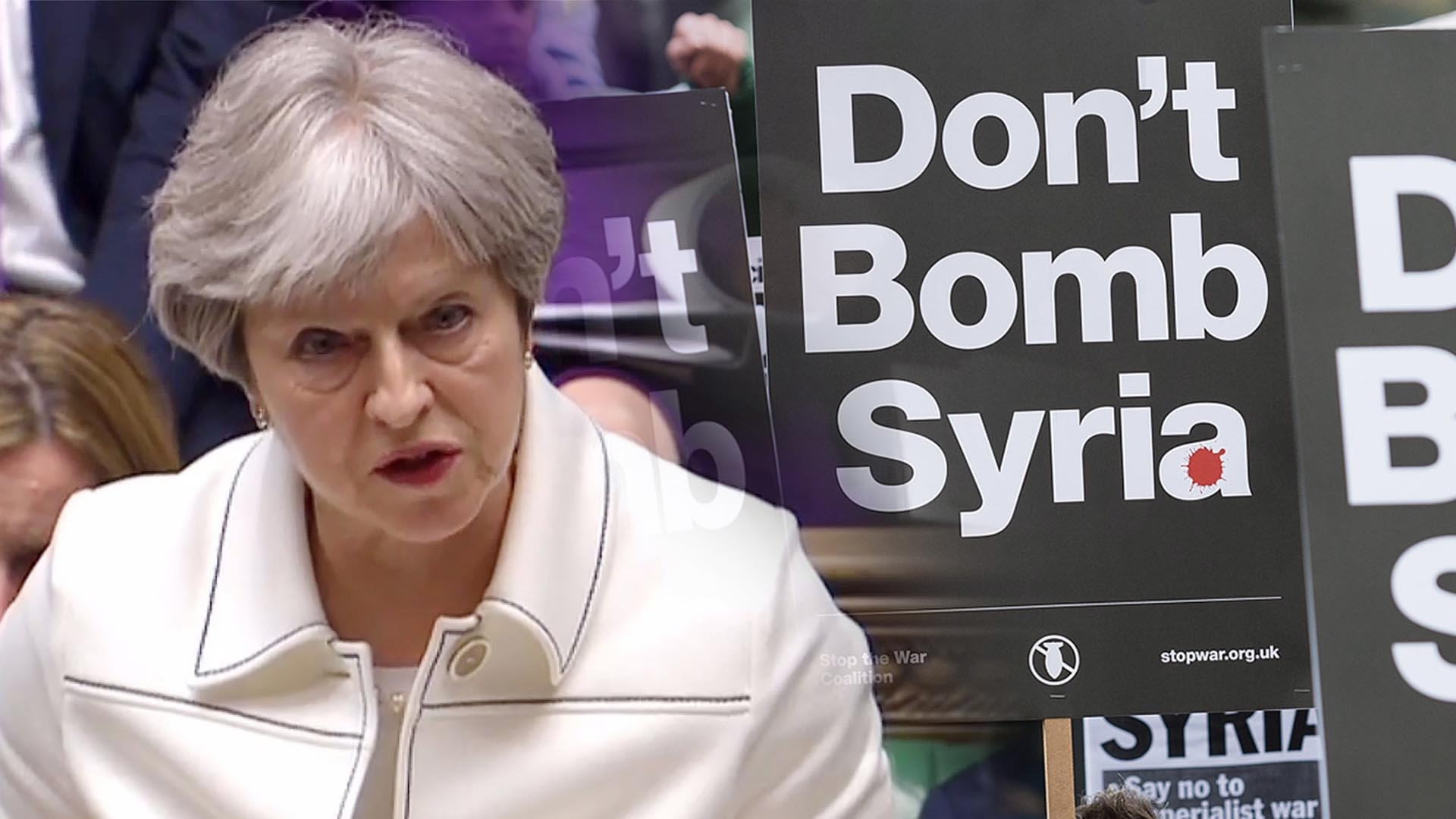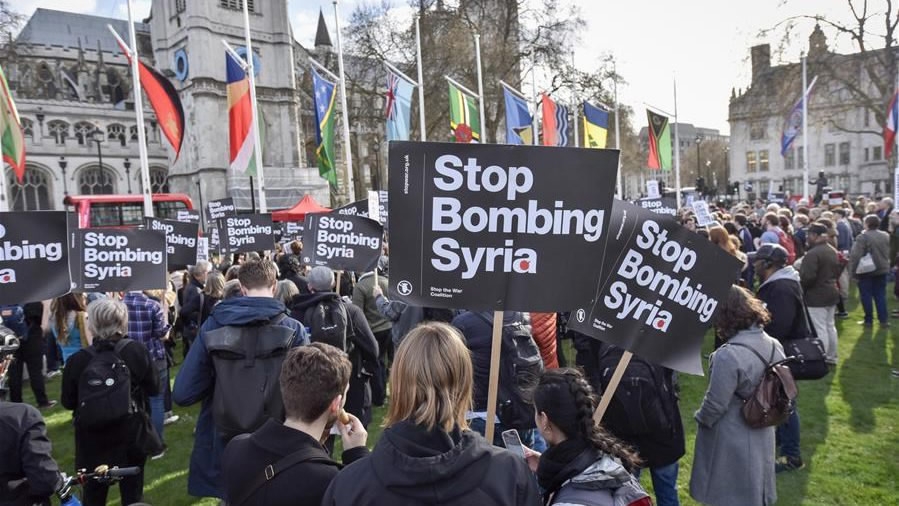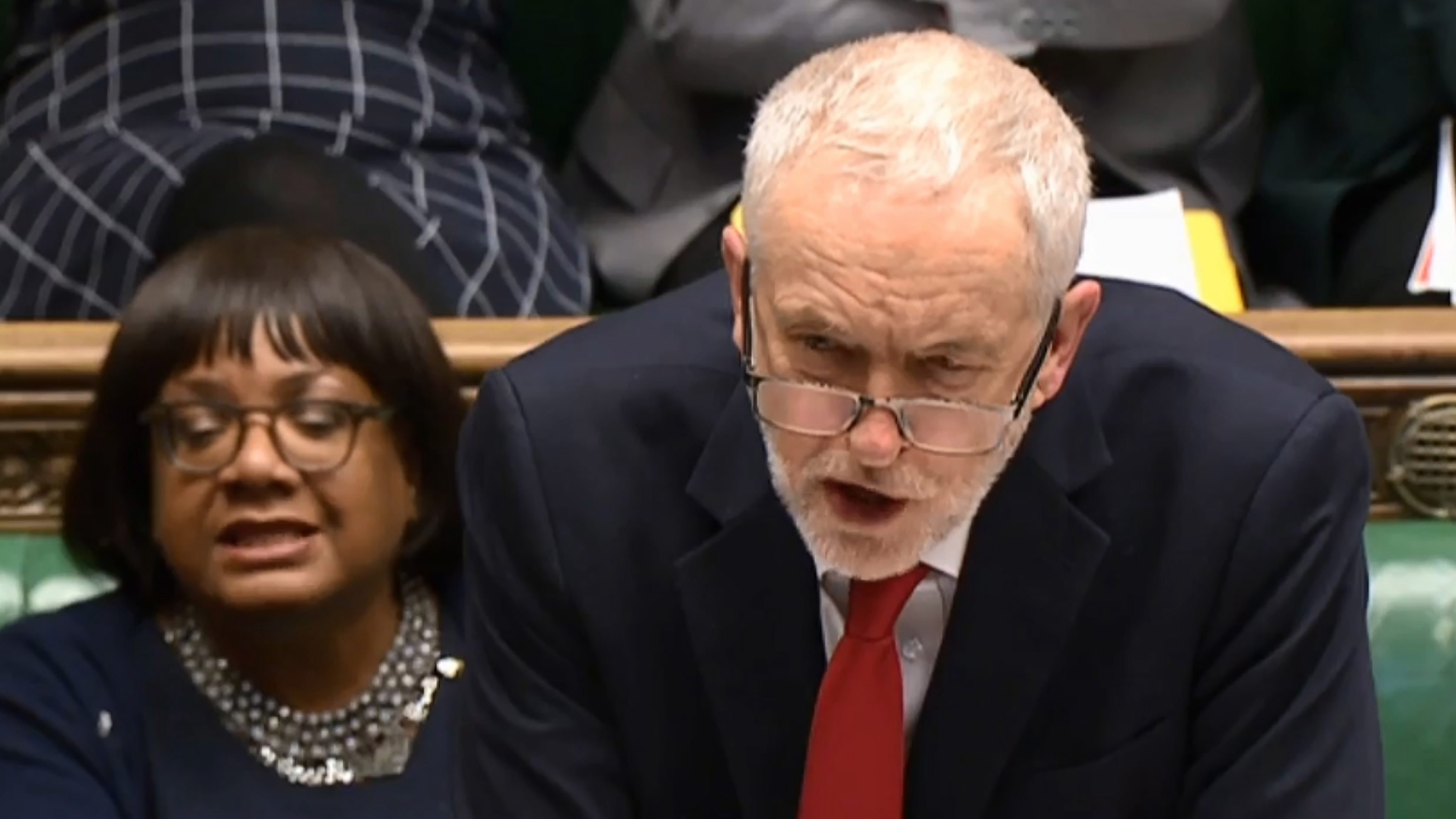
Politics
12:28, 17-Apr-2018
British PM defends legality of Syria strikes as protests simmer
CGTN
01:27

British Prime Minister Theresa May on Monday faced opposition inside and outside parliament to her decision to join US-led missile strikes against Syria.
May told the House of Commons that she acted without first seeking MPs' authorization because she needed to decide quickly about joining the US and France in Saturday’s air strikes, made in retaliation for an alleged poison gas attack that has been denied by the Syrian government.
May said she had no doubt the “Syrian regime” was behind the April 7 gas attack which she called a “stain on humanity”, and added that the strikes were "legally and morally right." She refused to be drawn on whether she would seek MPs' approval for future action.

Demonstrators take part in a protest organized by the Stop the War Coalition, in Parliament Square in London, Britain, on April 16, 2018. /Xinhua Photo
Demonstrators take part in a protest organized by the Stop the War Coalition, in Parliament Square in London, Britain, on April 16, 2018. /Xinhua Photo
Outside the Houses of Parliament, demonstrators took part in a protest organized by the Stop the War Coalition. Thousands gathered in London and other British cities to voice opposition to the strikes and call for an end to all bombing in Syria.
Jeremy Corbyn, leader of the opposition Labour party, led criticism of May for not recalling parliament for a vote, accusing her of blindly following US President Donald Trump’s orders and calling the decision "legally questionable."
"I’m absolutely clear that it is parliament’s responsibility to hold me to account for such decisions and parliament will do so,” May told the House of Commons in a rowdy session.
"But it is my responsibility as prime minister to make these decisions and I will make them.”

Britain's Prime Minister Theresa May on the step of 10 Downing Street in London on April 16, 2018. /VCG Photo
Britain's Prime Minister Theresa May on the step of 10 Downing Street in London on April 16, 2018. /VCG Photo
May has to tread carefully in parliament, where she now relies on a small Northern Irish party to get enough votes to pass legislation, and has tried to appease lawmakers, angry over being sidelined, by offering time to discuss Syria.
Ian Blackford, the leader of the opposition Scottish National Party in Westminster, was another of her critics who asked May why she had broken with a convention dating back to the 2003 invasion of Iraq and not recalled parliament for a vote.
"The prime minister leads a minority government,” he said. "It was perfectly possible for the house to have been recalled in advance. Why was this not done?”
While some in May’s Conservative party also expressed their regret that she had not asked for parliament's approval, May won praise from others – one calling her a “real prime minister” – for moving swiftly to support the joint air strikes.

Britain's opposition Labour party leader Jeremy Corbyn. /VCG Photo
Britain's opposition Labour party leader Jeremy Corbyn. /VCG Photo
Corbyn drew jeers and shouts for his taunt that May had acted to please Trump.
"We have not done this because President Trump asked us to, we have done it because we believed it was the right thing to do, and we are not alone,” May said.
But she avoided answering questions on her future strategy for Syria, on whether parliament would be consulted on any further strikes and ignored demands by Corbyn for a War Powers Act to limit the government’s power to launch military action. That prompted calls for future debates on Syria.
Corbyn won approval for a debate on parliament’s rights in regard to British military action on Tuesday, and parliament debated long into the evening on Monday on the government’s strategy in Syria, particularly regarding civilians there.
Britain has said there are no plans for future strikes against Syria. May has emphasized that the strikes were “limited” to only target Damascus’s chemical weapons program.
Opinion polls suggest that most Britons do not support military action, with one by Survation taken after the strikes were launched showing 40 percent of the 2,060 people asked opposed the action. Some 36 percent supported the strikes.
(With input from agencies)
8150km

SITEMAP
Copyright © 2018 CGTN. Beijing ICP prepared NO.16065310-3
Copyright © 2018 CGTN. Beijing ICP prepared NO.16065310-3